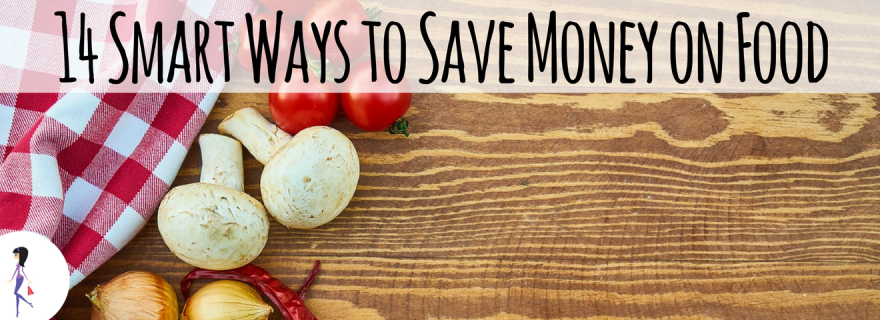For some reason, I always end up spending more money on food than I meant to! Anyone else? I try to be responsible with my budget, and I think I’m a smart shopper, but my final bill is always more than I planned and to be honest, I’m sick of it! So I did a little research and a little thinking, and I have a whole new approach now! I know it can help a lot of you, too, so here it is:
1. Shop smartly:
You don’t need me to tell you what this means: use coupons and look for sales.
2. Eat a good breakfast:
Not only is breakfast the most important meal of the day; it’s also the cheapest! Which means you can have a filling and nutritious morning meal and save your pennies. Typical healthy breakfast foods like eggs, oatmeal, toast, and veggies don’t cost a lot, so stock up and make sure to eat breakfast every day.
3. Keep it simple for lunch:
If you plan well you can also eat a good lunch without spending a lot. Keep it simple and healthy with sandwiches and wraps using tuna, hummus, or chicken as fillings.
4. Drink water:
There are so many good reasons to drink lots of water throughout the day, and one of them is your budget. Drink a glass of water 20-30 minutes before a meal and you’ll feel full with less food.
5. Cook at home:
Meals that you prepare yourself are cheaper and healthier than takeout or restaurants.
6. Don’t buy too much at one time:
I usually do my big shopping once a week so I’m not busy with that every day. My money is valuable, and so is my time! The problem is that when I think big and buy more than I need, a lot of it ends up in the garbage- what a waste! This is something I’ll watch out for in the future. I guess it’s not so terrible to run into the store for one or two items if it means I’ll be throwing out less at the end of the week.
7. Stock up on cans:
Groceries like cans and dried beans and rice have a long shelf life, so stock up when they’re on sale. This way you’ll also always be prepared to whip up a quick, healthy, and inexpensive meal.
8. Buy store and generic brands:
They are cheaper than brand names and taste just about the same.
9. Freeze leftovers:
Don’t let leftovers rot in the refrigerator; package them up and freeze for another time. Or pack them up and eat them for lunch the next day.
10. Buy in-season produce:
It tastes better and the prices are better.
11. Make your own snack bags:
Is there anything more convenient than snack-size bags? You just toss them in the kids’ lunch boxes, or in your own bag on the way out the door, but you’ll save a lot of money if you buy the family-size bags. You can portion them out yourself into snack bags as soon as you get home from the store and you’ll have the same convenience for a fraction of the price!
12. Use older vegetables to make soup:
I’m not talking about rotten produce here- sometimes you’ll have to toss them, But if you have a carrot that’s less than crisp, it’s still perfect for using in soup.
13. Use a slow cooker for tougher cuts of meat:
Cheaper cuts of meat are usually tougher, but preparing them in a slow cooker tenderizes the meat and creates rich, delicious flavor, too!
14. Take inventory before you shop:
Another smart thing I’ll be starting to do ASAP is checking what I have at home before spending money in the store. If I already have two dozen eggs I won’t be needing another for about a week, so no need to pay for it!
What are your tips for saving money on food? Share with us on Facebook and Twitter!



 Add to favorites
Add to favorites






